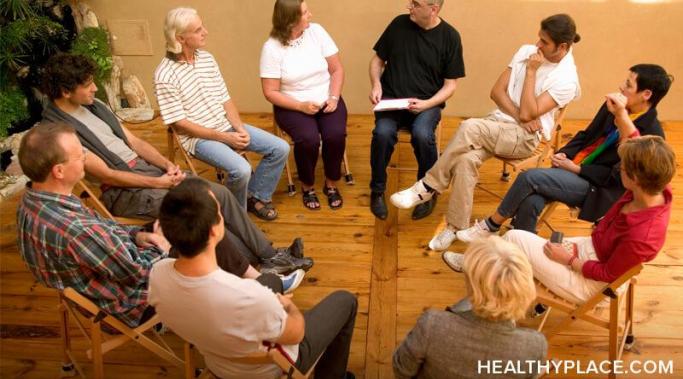Recently, I sought a second opinion on my psychiatric medication change. I was suffering because of the lowered dosage of the medication, and I still am. It’s not the first time I’ve done this. Here’s why I’ve had to seek a second opinion on my psychiatric medication.
Schizophrenia Treatment
What is an intensive outpatient program (IOP)? I am currently in one, and I have been helped by another before. So, I am going to explain to you what an intensive outpatient program is in this article.
One part of my treatment for schizoaffective disorder is an antianxiety medication I take as needed. I’ve been taking it for decades, but now my psychiatric nurse practitioner (NP) wants to ween me off of it. I have mixed feelings about this change in my schizoaffective treatment.
Now, I have therapy skills for my schizoaffective disorder, but that wasn't true when I was younger. My first psychotic episode hit 25 years ago this holiday season, when I was a student at the Rhode Island School of Design (RISD). I was only 19 years old—terrified and somewhat unaware of what was happening. I’ve grown up a lot since then. You can grow and change while living with a mental illness. I know because I did, and my mental illness changed with me. What helped me and my schizoaffective disorder grow up, along with medication, are skills I learned in therapy. Here are some of the ones I found to be most helpful.
It can be hard to remember that hope is medicine. When someone is first diagnosed with a mental health condition, it can be difficult to accept, and it can seem as if the life you once knew is no longer possible or accessible to you. That's what it was like when I was first diagnosed with bipolar disorder with psychotic features. I had a similar reaction when I was later diagnosed with chronic paranoid schizophrenia. But now I know that even with schizophrenia, hope is medicine.
I consider antipsychotic medication the most critical piece of my treatment. However, no matter how well the drugs work, I'm still human and have other things going on. On my best days, when I have very few symptoms of schizophrenia, I am still in relationships with others. I still have memories. I have habits. I have patterns of communicating, traumatic events that I've experienced, and a connection to myself. For example, I'm living with the grief of my dad moving into a nursing home and the aftermath of a global pandemic. For me, antipsychotics and therapy work together.
Support groups have helped me a lot with my schizoaffective disorder over the years. Here are some ways support groups have been beneficial. (Note: this post contains a trigger warning.)
Schizophrenia is a spectrum disorder. Some people experience acute symptoms, while others experience mild to no symptoms. When you begin to notice signs of schizophrenia, it's best to reach out for help. I did, eventually, and I found an intensive outpatient program (IOP) that has helped me and that I enjoy.
My psychopharmacologist of the past 20 years is retiring, and my former psychotherapist moved out of state, so I had to find a new therapist to treat my schizoaffective disorder and a new practitioner to prescribe psychiatric medication for my schizoaffective disorder.
For the past three months, I haven’t had insurance for my prescriptions or necessities such as blood work. During April and May, with no insurance even for doctors’ visits, including therapy, I experienced one of the most stressful periods I’ve ever lived through. Here’s what it was like.









